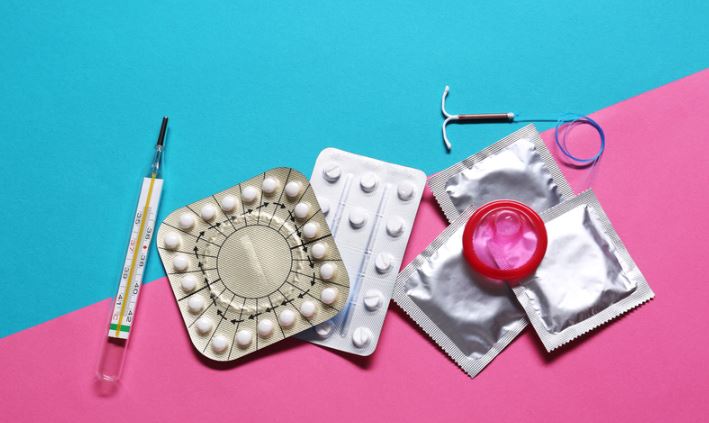Accessing sexual health services and contraception shouldn’t be complicated or overwhelming. Whether you’re curious, unsure, or have questions, Essex Sexual Health Service is here to make it easy for you. We offer a wide range of confidential and free services across Essex, ensuring you have the support you need. Here are some useful tips to help you take charge of your sexual health confidently.
- Know Your Options
Contraception isn’t one-size-fits-all, and it’s important to find a method that suits your body, lifestyle, and needs. Some of the options available include:
- Condoms (Male & Female): Great for preventing both pregnancy and sexually transmitted infections (STIs). They’re a simple, non-hormonal method.
- Oral Contraceptive Pills: A daily hormonal option available in different types, including combined pills (oestrogen and progestin) and progestin-only pills.
- Long-Acting Reversible Contraceptives (LARCs): This includes implants (lasting up to 3 years) and intrauterine devices (IUDs), both hormonal and non-hormonal, which can last 5–10 years.
- Patches and Injections: Hormonal options that don’t require daily attention—patches are changed weekly, while injections are administered every 3 months.
- Emergency Contraception: The “morning-after pill” should be used as a backup option after unprotected sex or contraceptive failure.
Tip: Visit one of our clinics or contact Essex Sexual Health Service to discuss which method is best for you.
- Where to Get Contraception in Essex
Do you know where to access free contraception and advice in Essex? Many young people are unaware of the full range of services available, so here’s a quick guide:
- Sexual Health Clinics: We have clinics located across Essex, including Chelmsford, Basildon, and Colchester. You can access various services, from contraceptive consultations to STI testing and treatment.
- Pharmacies: Some pharmacies offer emergency contraception and other services like the eC-Card scheme for free condom distribution. Download the free eC-Card app to access free condoms near you.
- GP Surgeries: GP practices provide contraceptive services, though waiting times may vary. If you’re interested in long-acting methods like implants or IUDs, check if your GP offers these services or if you need a referral to a specialist clinic.
- School Nurses and College Health Services: If you’re in school or college, ask about the health services available. Many schools and colleges offer confidential consultations and contraception, including emergency options and advice.
We’re committed to making contraception accessible. If you’re not sure where to start, check our website or call your local clinic.
- Confidentiality Matters
We understand that seeking sexual health services can feel daunting, especially if you’re worried about confidentiality. Rest assured, our services are private and confidential. Whether you’re a young person, a student, or anyone needing support, you have the right to access care without worrying about your information being shared.
Tip: If you need advice but don’t feel comfortable visiting in person, our clinics offer online consultations and telephone support. Your comfort and privacy are our priorities.
- Condoms Are Still Important!
Condoms are one of the simplest and most effective ways to protect against both pregnancy and STIs. Despite being accessible, many young people are not using them regularly. Here’s why they matter:
- Protection Against STIs: Condoms are the only contraceptive method that also protects against sexually transmitted infections, including HIV.
- Emergency Backup: Even if you’re using another form of contraception, like the pill or an IUD, condoms are an extra layer of protection, especially if you’re concerned about missed pills or contraceptive failure.
Tip: Make carrying a condom part of your routine—just like your phone or wallet. If you’re worried about how to ask your partner to use one, remember: it’s about your health and safety, and your comfort comes first. Access free condoms through our eC-Card scheme and selected pharmacies.
- Myths About Contraception
It’s common to hear misinformation about contraception, whether from social media, friends, or other sources. Here are a few myths and the facts:
- Myth: “Hormonal contraception causes weight gain.”
Fact: Studies show no consistent link. Some people may experience temporary water retention, but this usually stabilises. Consult a professional for alternatives if needed.
- Myth: “Emergency contraception is the same as regular birth control.”
Fact: The morning-after pill is for emergencies only and less effective than regular methods. It should not replace your usual contraception.
- Myth: “Using an IUD or implant is painful and dangerous.”
Fact: Insertion is generally quick and causes mild discomfort. These methods are safe, effective, and provide long-term protection.
For accurate information, always consult a healthcare professional.
Get the Support You Need
Taking charge of your sexual health is an empowering step. Whether you want to start using contraception, switch to a different method, or have questions about STIs, we’re here to support you every step of the way. Visit our website for more details or find your nearest clinic in Chelmsford, Basildon, Colchester, and other locations across Essex.
Remember: Your health and well-being matter. Don’t hesitate to reach out—confidential support and advice are just a call or visit away. Visit Essex Sexual Health Service today.


